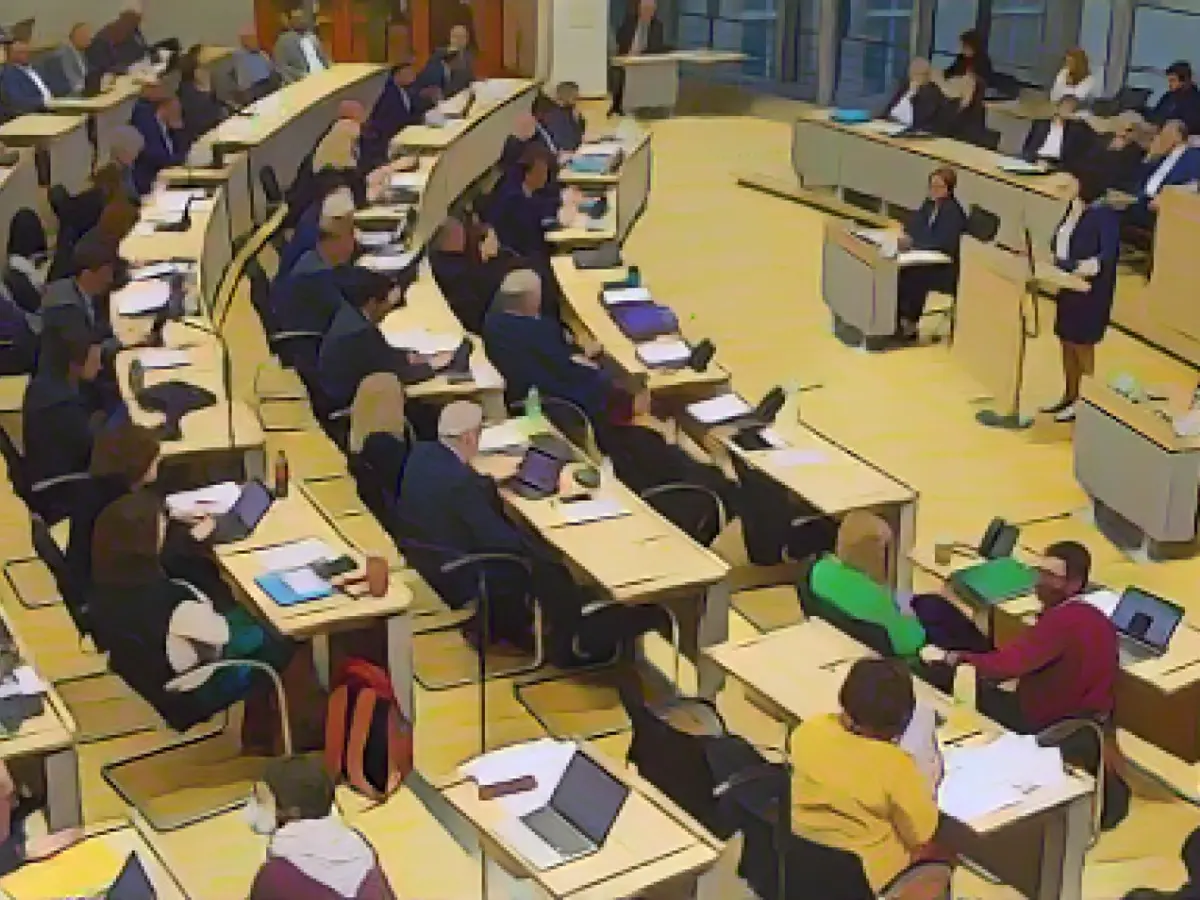Migration Policy Delays in 2023's Coalition Plans
The coalition government's plans for migration policy, notably the citizenship law and the Return Improvement Act, have faced postponement until 2024. The cause? The Free Democratic Party (FDP) is arguing against amendment requests from its coalition partners.
The FDP’s Stance
Konstantin Kuhle, the FDP's parliamentary group deputy leader, expressed clear expectations for more control and order in migration matters. This includes wanting an extension of the exit detention system and a reduction in social benefits for immigrants. The FDP is committed to not watering down the expectations of federal states and municipalities, Kuhle emphasized.
Proposed Reforms
The proposed legislation states that immigrants can become citizens of Germany after five years of residency, provided they can support themselves without state help (previously, they had to live in the country for at least eight years). If they excel at school, work, or volunteering, naturalization can occur after three years. Immigrants can keep their existing passports with this overhaul, a shift already applied to EU citizens and some unique cases, but not to people from Turkey, for example.
The proposed changes aim to simplify procedures, ensuring that deportations don't fail as frequently due to missed connections or difficulty locating the individuals concerned. The maximum duration of detention prior to deportation is revised to 28 days, while representatives of authorities will also be granted access to rooms deviated from the deportee's in shared living quarters.
Room for Improvement
During initial debates on the bills, the Greens suggested making exceptions for disabled people and the unemployed receiving social benefits to grant naturalization, while the SPD wishes to guarantee that people with disabilities, carers, and single parents are not disadvantaged due to financial instability.
Overcoming Obstacles
The FDP aims to revise the citizenship law to align with economic integration and strengthen the livelihood criterion, making Germany an attractive country for immigration. Regardless of face, the Greens' persist in demanding maximum opportunities, leading to national gridlock, according to CDU/CSU parliamentary group spokesperson Alexander Throm.
Deportation Stats
Over 13,500 deportations were completed in the first ten months of 2023, according to the Federal Ministry of the Interior, but 24,704 attempts failed beforehand. In 2022, 12,945 successful deportations faced 20,106 failures, largely due to difficulties in locating individuals.
Impact of Proposed Changes
The FDP proposed that foreigners be provided with a public defender in all cases of detention pending deportation or custody pending departure, although opposition from the FDP on this matter is indeterminate. Should this change occur, it may necessitate approval from the Bundesrat, potentially stalling the legislation.
The coalition's plans for a new Federal Police Act and quick freeze procedure for securing IP addresses of suspected criminals have also remained on hold for months due to disagreements between Federal Interior Minister Nancy Faeser (SPD) and Federal Justice Minister Marco Buschmann (FDP).
Enrichment Data:
The delayed migration policy projects, including the citizenship law and the Return Improvement Act, were not solely caused by the FDP's resistance within the coalition. Nevertheless, the FDP's stance on migration policies, supporting immigration limitations and border security measures, has significantly influenced the broader political dynamics in Germany. By aligning with the CDU and the radical-right AfD on migration-related issues, the FDP has contributed to a rightward shift and heightened polarization in the German political landscape.
[1]
[2]
[3]
[4]
[5]
[6]
[7]
[8]








